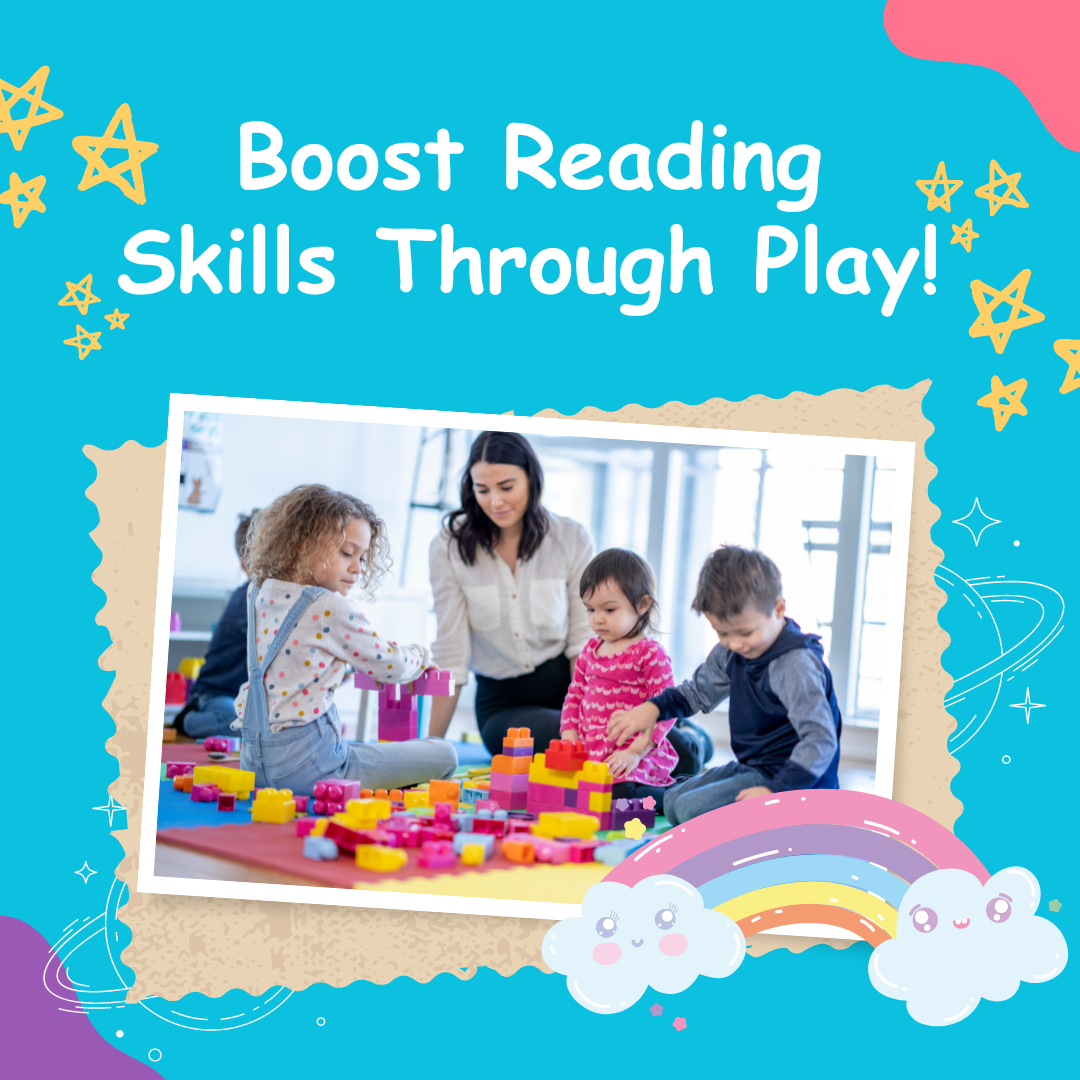Boost Your Child's Reading Skills Through Play This Summer

Summer is finally here, bringing with it long, sunny days and the perfect opportunity to combine fun and learning for your children. Did you know that play can significantly advance children's reading skills? When kids engage in playful activities, they develop language, comprehension, and critical thinking abilities. In this blog post, we'll explore the importance of play in advancing children's reading skills and offer practical tips for incorporating play and reading into your summer plans.
The Importance of Play in Reading Development
Play is a fundamental part of childhood, and it plays a crucial role in cognitive, physical, and emotional development. When it comes to reading, play helps children:
Develop Language Skills: Through interactive play, children learn new words, practice sentence structure, and enhance their verbal communication.
Enhance Comprehension: Acting out stories and engaging in pretend play helps children understand narrative structures and character motivations.
Stimulate Imagination: Creative play encourages children to think beyond the literal text and imagine different scenarios, fostering deeper engagement with stories.
Improve Critical Thinking: Games and puzzles challenge children to solve problems, make decisions, and think logically, all of which are essential skills for reading comprehension.
Tips for Incorporating Play and Reading into Summer Plans
Here are some fun and practical ways to blend play and reading, ensuring your child continues to develop their reading skills while enjoying their summer break:
Storytime Adventures: Turn Storytime into an interactive adventure. Act out the stories, use different voices for characters, and encourage your child to participate. This makes reading more engaging and helps with comprehension. For example, if you're reading "The Three Little Pigs," build houses out of different materials and let your child blow them down like the Big Bad Wolf.
Outdoor Reading Nooks: Create a cozy reading spot in your backyard or at the park. Let your child choose their favorite books and have a picnic-style reading session. The fresh air and a change of scenery can make reading more exciting and enjoyable. You can even set up a tent or a hammock to make it a special reading hideaway.
Pretend Play: Encourage your child to create their own stories during pretend play. Provide costumes, props, and a "stage" area where they can act out their tales. This stimulates imagination and narrative skills, making them more confident in their storytelling abilities.
Educational Games: Incorporate word games and puzzles into your playtime. Games like Scrabble, Boggle, or even a simple game of charades using book characters can be both fun and educational. These games help children recognize and spell new words, enhancing their vocabulary and spelling skills.
Creative Writing: Have your child write their own stories or comics. Provide them with colorful markers, paper, and stickers. This activity enhances writing skills and allows them to express their creativity. You can also create a family newspaper or a summer journal where your child can document their adventures and experiences.
Library Adventures: Visit your local library for story hours, book clubs, and reading challenges. Libraries often have summer programs designed to keep kids engaged and excited about reading. These programs provide a great opportunity for children to discover new books, meet other young readers, and participate in fun activities.
Making Reading a Joyful Part of Summer
The key to fostering a love for reading in your child is to make it a joyful and integral part of their daily activities. By combining play with learning, you’re setting the foundation for lifelong reading habits and academic success. Here are a few additional tips to keep the momentum going:
Set a Reading Routine: Establish a daily reading routine, whether it’s in the morning, before bed, or during a specific time of day. Consistency helps children develop a habit of reading.
Be a Reading Role Model: Let your child see you reading. When they see that reading is important to you, they’re more likely to develop an interest in it themselves.
Celebrate Achievements: Celebrate your child's reading milestones and achievements, whether it’s finishing a book, reading a certain number of pages, or learning new words. Positive reinforcement encourages them to keep reading.
By incorporating these strategies into your summer plans, you can create a balanced mix of play and reading that keeps your child engaged, entertained, and educationally enriched. Happy reading and playing! 🌞📚❤️
Join me on social media and share your own tips and experiences. How do you make reading fun for your kids during the summer? Let’s inspire each other to create a summer full of learning and laughter!
Be sure to check out my other blog posts for more tips, tricks, and book updates!
https://nicoleokeauthor.com/blog
